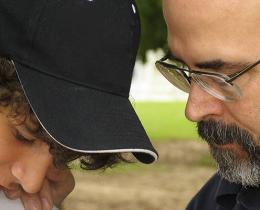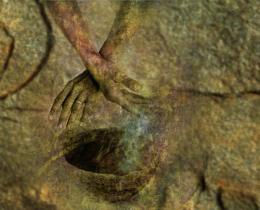Omega: How did you come up with the Tools?
Phil: I actually developed the tools out of frustration. Back in the late 1970s and early 1980s, I was frustrated with psychotherapy. It dealt with the causes of people’s problems, but it didn’t help so much where the rubber meets the road.
I felt like I’d hit a blank spot where I’d take a person to a certain level of self-understanding, but then they needed to do something to actively change things, and I didn’t have anything to offer them. Maybe they needed to do something external, like get out of a relationship or confront somebody, or maybe it was something internal, like stop worrying or being so judgmental. I felt like I’d lead the horse to water but didn’t have a way to make it drink.
I began to make up solutions on the spot, to force myself to say something. After doing this many times, and working with hundreds of clients, I found some wisdom surfacing out of my unconscious. All that repetition resulted in about 20 or 25 tools that really work for people.
Omega: People use the tools for everything from creativity to pain management to parenting, and more. Is there a universal principle behind the Tools that makes them so effective in so many circumstances?
Barry: I think that each tool, regardless of what it's designed to solve, in some way connects people to solutions that already exist inside of themselves. The Tools are not an attempt to impose a solution from outside; they’re an attempt to give a person a way to activate solutions from within.
I think they have such diverse application because once you get a person connected to a source greater than themselves—whether you call that their unconscious or God or higher forces, or whatever—then you've established a connection that they can apply to other problems that occur in their life long after they've quit therapy.
Omega: What’s the most unexpected thing you’ve discovered about the Tools?
Barry: When I was learning all this stuff from Phil, I was shocked at how I could learn a tool for anxiety and then hear from a patient how they used that tool for a completely different problem. The Tools are very mutable and can be used in different contexts. Applying them is like an art.
It also surprised me how when you use the Tools on yourself you begin to change things around you, even indirectly. I worked with one client who wasn’t good at setting limits, so people walked all over him. He was working with the Inner Authority tool, and before he even started confronting people externally, people started treating him differently. It’s called field theory—this idea that the energy we give out as an individual impacts our environment. He was more self-respecting, so others began to respect him more.
Omega: Is there a Golden Rule of Tools?
Barry: The Golden Rule that Phil and I go by is that problems exist so you can develop potentials you didn't know you had. The Tools are a bridge to connect you to an inner resource that’s buried in your unconscious and the problem is there to get you to cross that bridge.
Omega: How are the Tools different from traditional psychotherapy?
Barry: Traditional psychotherapy takes place on the thinking level. It's all about analyzing why you have a problem and looking for the roots of that problem in your past. But it’s not about taking action.
Phil: Human beings exist in two very different spaces. To get a sense of how this works, draw a horizontal line across the page and label above the line “thinking space” and below the line “work space.” When you’re in the thinking space, you can plan, worry, evaluate, etc., but you’re “up in your head,” unable to actually do anything. The work space is where you can take action. Not just outer action, like changing jobs or confronting someone—but inner action, which means using the tools to change your state of mind.
It’s human nature to go back to the thinking space; it’s more familiar and less painful. So using the tools is like pushing a beach ball under water (into the work space), only to have it pop back up into the thinking space. Having the will to live in the work space makes changes and creativity happen.
Omega: Your website gives an introduction to the 5 Tools in the first book: The Reversal of Desire, Active Love, Inner Authority, Grateful Flow, and Jeopardy. What's one of the new tools that will be in the next book?
Barry: One of the Tools we’re working on is called the Mother Tool. It can be used when you’re feeling really demoralized, either because you didn’t get what you wanted or you got what you wanted and you realize it hasn’t saved you from anything. This Tool is a way of infusing yourself with a sense that you still have a future and you can still work toward it.
Omega: Who are your biggest influences? What wisdom moves and inspires you?
Phil: My biggest influence by far is Rudolph Steiner. He started out as a philosopher and then switched to the study of the spiritual world. He was a prolific author and speaker and had such credibility—there was no power trip, no hierarchy, nothing. He connected the evolution of human consciousness with the history of philosophy, political history, the history of science, the history of art. He called what he did spiritual science and basically said, “Believe nothing that I tell you. I'm gonna show you how to render yourself evolved enough to actually see for yourself what the spiritual world is comprised of." And he said, "If you don't see, if it doesn't look the way I told you it looked, stop buying my books, pay no attention to me."
Barry: My biggest influence is Phil. He not only revolutionized the way I did therapy, he helped me change as a human being. I just would not be the person I am without him. He's just had an incredible influence on every aspect of my life. I’m also a huge fan of Rainer Maria Rilke. Many people write about the power of spirituality, but they do it from kind of a removed theoretical perspective. Rilke evokes it—the beauty of the language just blasts my heart open.



